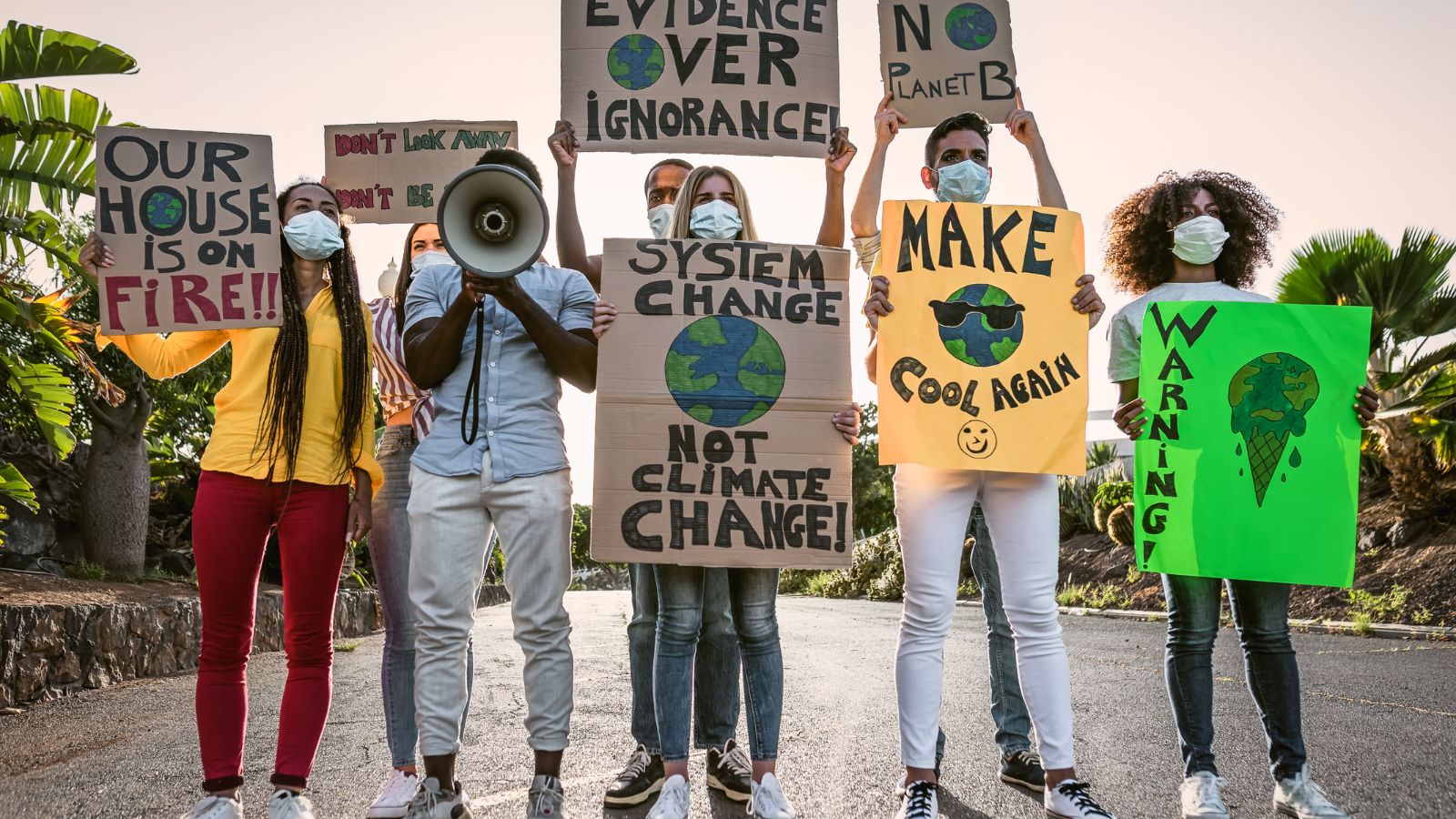Phone:
(701)814-6992
Physical address:
6296 Donnelly Plaza
Ratkeville, Bahamas.

In the face of mounting environmental crises—ranging from climate change to plastic pollution—Generation Z (born between 1997 and 2012) is emerging as a potent force for ecological awareness and sustainable living. Unlike previous generations, Gen Z has grown up amidst intensifying global conversations about environmental degradation, biodiversity loss, and the urgent need for climate action. As a result, they are not only more aware of environmental issues but are also actively shifting their lifestyles, values, and consumer habits in response. This article explores Gen Z’s environmental consciousness, their approach to sustainability, and how they are shaping a greener future.
Gen Z is the first generation to be raised entirely in the digital age, with immediate access to a constant stream of global news, scientific reports, and social media activism. From Greta Thunberg’s Fridays for Future movement to the devastating images of wildfires in Australia and California, Gen Z has had front-row seats to the planet’s ecological turmoil. According to a 2021 Pew Research Center study, climate change ranks among the top concerns for Gen Z, even above issues like healthcare and education.
This early exposure has shaped a generation that is highly informed and deeply concerned about the planet’s future. Environmental education has also become more integrated into school curriculums, and platforms like TikTok and Instagram serve as vehicles for eco-awareness, DIY sustainable living tips, and calls to action.
Environmental awareness in Gen Z doesn’t stop at rhetoric; it is evident in how they live, shop, eat, and travel.
Fast fashion, long criticized for its environmental and ethical shortcomings, is increasingly falling out of favor with Gen Z. Instead, they are embracing slow fashion—opting for thrift shopping, upcycling clothes, and supporting brands that prioritize transparency and sustainability. Apps like Depop, Vinted, and Poshmark have exploded in popularity, allowing users to buy and sell second-hand clothing easily. For Gen Z, fashion is not just a means of self-expression but also a statement of values.
Gen Z consumers are far more likely to scrutinize brands based on their environmental practices. They demand transparency, from carbon footprints to supply chain ethics. According to a First Insight survey, 73% of Gen Z consumers are willing to pay more for sustainable products. They are looking beyond price and convenience, aligning their purchasing decisions with their values.
This shift is also seen in personal health habits. Many Gen Zers who smoke cigarettes are turning to vapes as a less harmful alternative, often as a stepping stone to quitting nicotine altogether. While debates continue about long-term effects, some see vaping as a pragmatic harm-reduction tool, especially when paired with education and support for cessation.
Dietary choices are another area where Gen Z is leading change. Whether for environmental, health, or ethical reasons, a growing number of Gen Z individuals are embracing plant-based diets. Studies indicate that Gen Z is more likely than any other generation to identify as vegetarian or vegan.
The environmental impact of meat production—deforestation, methane emissions, and excessive water use—is well documented, and Gen Z is listening. This has led to increased demand for plant-based meat alternatives, such as those produced by Beyond Meat and Impossible Foods.
Gen Z’s environmental awareness extends to how they move around. Many are delaying or rejecting car ownership altogether, favoring public transportation, cycling, and electric scooters. When they do drive, they are more inclined toward hybrid and electric vehicles. Travel preferences are also shifting, with more Gen Zers opting for eco-tourism and “slow travel” that prioritizes experiences over carbon-intensive itineraries.
Gen Z’s tech-savvy nature enables them to turn awareness into action with unprecedented speed and reach. They use social media not just for entertainment but as a platform for organizing, educating, and pressuring institutions. Hashtags like #ClimateStrike and #ZeroWaste have helped mobilize millions globally.
Online petitions, viral infographics, and digital fundraising campaigns have become powerful tools for raising awareness and instigating change. Activists like Leah Thomas, founder of Intersectional Environmentalist, and Maya Penn, a teen entrepreneur and environmental speaker, are using their platforms to broaden the conversation around sustainability, especially through the lens of diversity and inclusivity.
While Gen Z’s environmental commitment is admirable, it is not without its psychological toll. The term “eco-anxiety” has emerged to describe the chronic fear of environmental doom. Many Gen Z individuals report feelings of helplessness and existential dread about the state of the planet. In response, mental health professionals are developing therapeutic approaches to help individuals cope, while activist communities are emphasizing the importance of “joyful activism”—focusing on hope and empowerment rather than despair.
Despite their intentions, Gen Z faces real challenges in practicing sustainable living. Many eco-friendly products and services come with a higher price tag, making them less accessible to low-income students and young professionals. In addition, not all parts of the world offer equal access to sustainable infrastructure like recycling programs or public transport.
Moreover, digital technologies come with environmental costs, including e-waste and energy consumption associated with data centers. Balancing digital reliance with environmental responsibility is an ongoing struggle.
As Gen Z enters the workforce and gains economic and political influence, their environmental values are likely to reshape industries and policies. Many are choosing careers in renewable energy, environmental science, and sustainable business. They’re also more inclined to support political candidates and initiatives prioritizing climate action.
Educational institutions, governments, and businesses would do well to listen to this generation. Society can harness the momentum Gen Z is creating by supporting green entrepreneurship, investing in sustainable infrastructure, and providing eco-education.
Generation Z is not just environmentally aware—they are environmentally active. From daily lifestyle choices to global activism, they are redefining what it means to live sustainably in the 21st century. While challenges remain, their passion, innovation, and commitment to the planet offer a beacon of hope in an era of ecological uncertainty. As they continue to mature, Gen Z has the potential to be the most environmentally impactful generation in history.